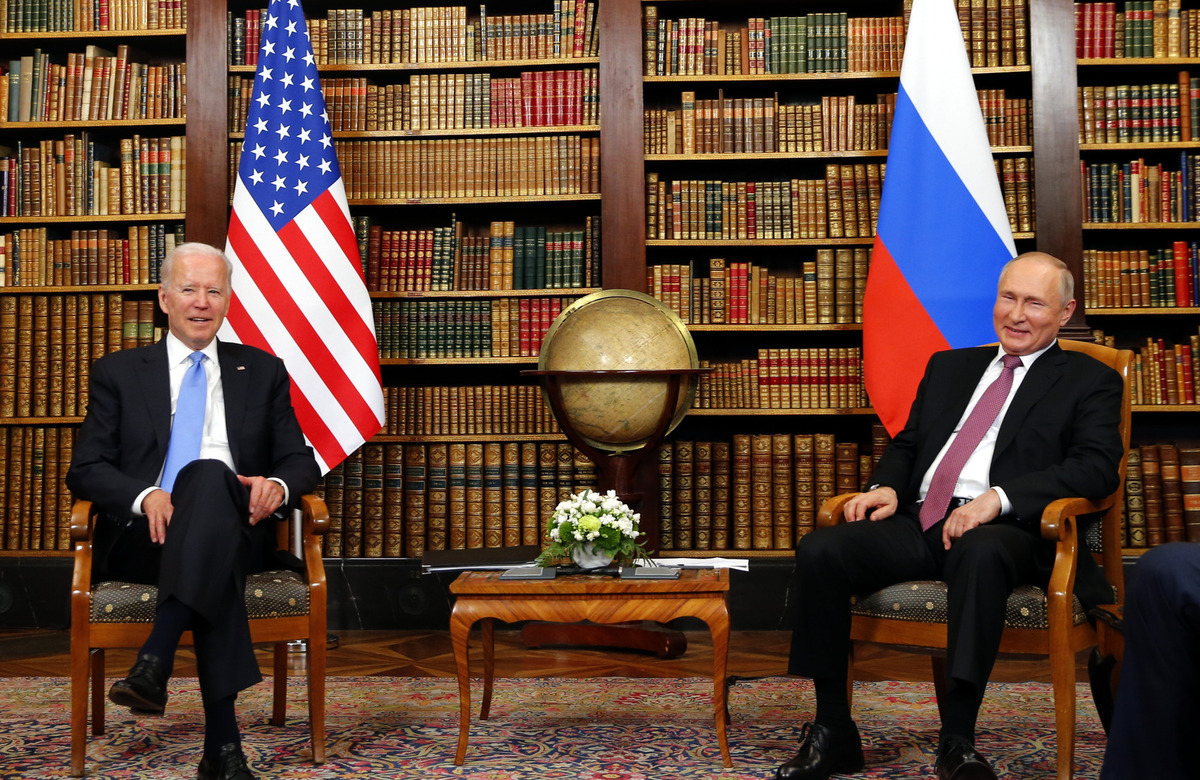The USA, Germany, and Russia have agreed the largest prisoner swap since the end of the Cold War. Although details are still emerging, the deal may see Moscow release up to 16 convicts of various nationalities. Wall Street Journal reporter Evan Gershkovich, 32, held on trumped up espionage charges since March 2023, is heading stateside.
Gershkovich is reportedly being joined by a host of other big names: Paul Whelan, a former US marine held since 2018; Vladimir Kara-Murza, the British-Russian opposition politician; and Alsu Kurmasheva, an American-Russian journalist. Western governments and analysts had unanimously criticised the politically motivated charges and flimsy judicial processes that led to the prisoners’ convictions.
In a surprise move, Vladimir Putin’s government has also agreed to the release of several prominent Russian political prisoners, including Ilya Yashin, a Russian citizen who has played a leading role in anti-Putin activism for more than a decade, and Oleg Orlov, a 71-year-old human rights activist. Other Russians to be freed include young artists and online activists convicted of “discrediting the Russian army,” an offence introduced in 2022 after Moscow’s invasion of Ukraine. As of the time of writing, the destination of these Russian citizens after release remains unclear.
Western countries including the USA, Norway, and Slovenia will release approximately eight detainees in return. The star turn is Vadim Krasikov, an FSB assassin convicted of murdering Chechen refugee Zelimkhan Khangoshvili — whom Vladimir Putin had publicly labelled a terrorist — in Germany in 2019. Along with Krasikov, a cohort of agents, fraudsters, and hackers linked to low-level activity in the West are to be flown back to Russia.
The deal will be sure to cause some controversy in the West. A mooted swap in 2022 that involved Alexey Navalny fell apart due to German political opposition to the release of killer Krasikov. This time the blow may be softened by the release of two German nationals, Patrick Schobel and Dieter Voronin.
Nonetheless, the swap is a home run for a White House keen to boost its domestic standing before the US election. Joe Biden and Kamala Harris will claim credit for a major coup that will make positive headlines across the partisan divide. Meanwhile, the biggest loser from the deal is Russian president Vladimir Putin. His deliberate policy of hostage-taking among Western businesspeople, journalists, and intellectuals has not had the desired outcome. What looked like a surefire way to extricate maximum leverage from the release of a sympathetic figure like Evan Gershkovich has produced very little to excite the Russian public in exchange.
Nevertheless, some Russian state operatives convicted of crimes in the West return home to huge public fanfare and ongoing media stardom, fluffing Putin’s feathers as the leader who can stare down the West. Maria Butina, convicted as an unregistered foreign agent in the USA in 2019, is inescapable on Russian TV. Despite Russians’ enthusiasm for the president, very few will be impressed, however, with the return of an obnoxious and unphotogenic killer like Vadim Krasikov.
The turning tables of geopolitical fate have likely forced Vladimir Putin to accept this subpar deal. Putin has long been counting on Donald Trump’s victory in 2024 to end Western support for Ukraine’s defensive efforts. Now, a new problem has emerged for Putin: a resurgent Democratic bid for the White House. As the economic and strategic clouds gather for Putin, the desire to curry favour with an incoming Kamala Harris administration may be the only reason for agreeing to such a poor return for trump cards like Gershkovich, Kara-Murza, and Yashin.











Join the discussion
Join like minded readers that support our journalism by becoming a paid subscriber
To join the discussion in the comments, become a paid subscriber.
Join like minded readers that support our journalism, read unlimited articles and enjoy other subscriber-only benefits.
Subscribe